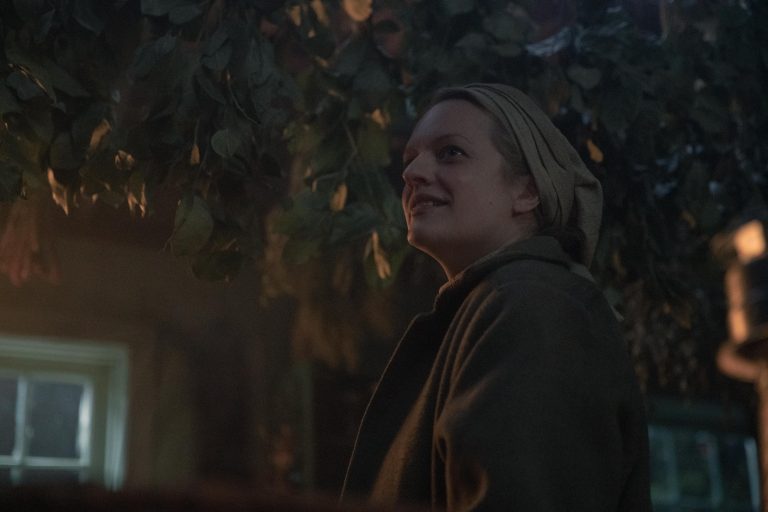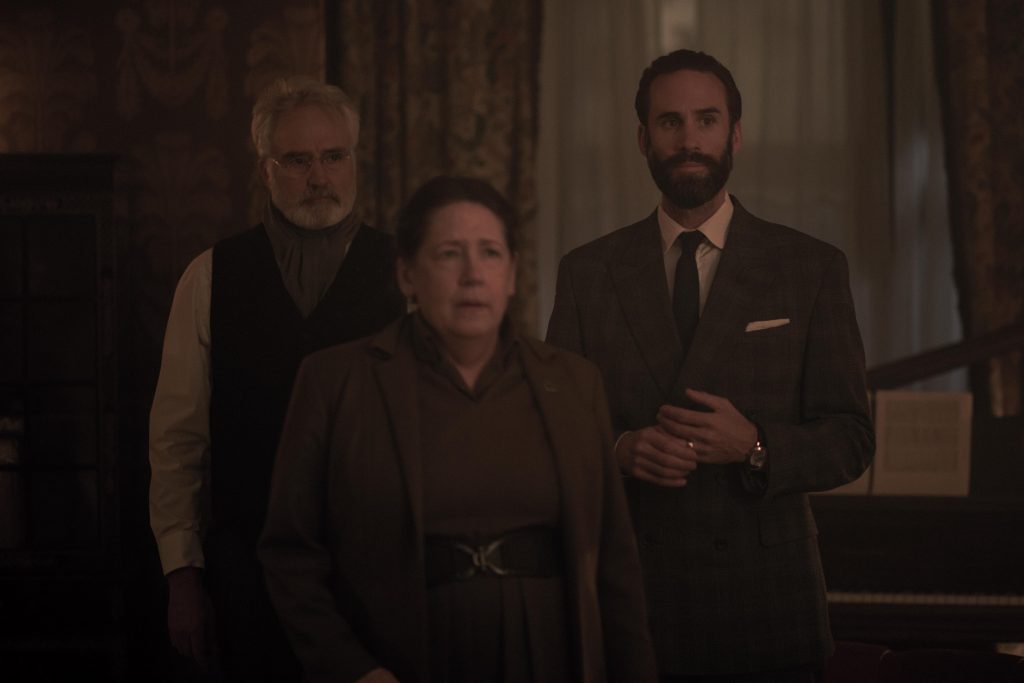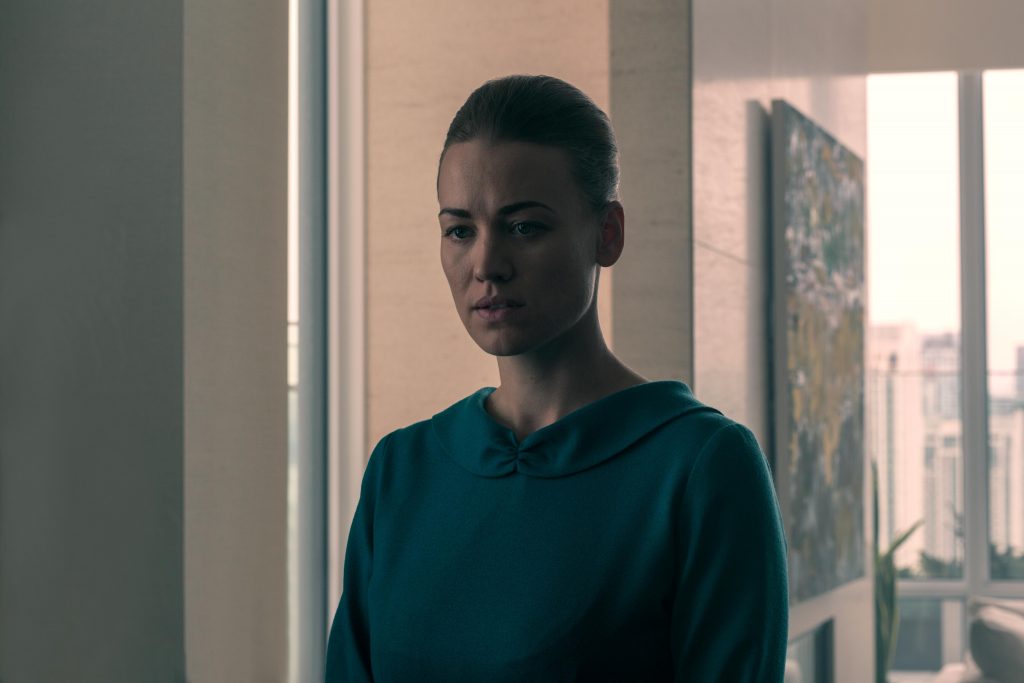
The Hulu series The Handmaid’s Tale returns for its fourth season next Wednesday after nearly a year and a half off the air. The adaptation of Margaret Atwood’s 1985 novel has long since surpassed its source material but continues to deliver a chilling, unforgettable portrait of a dystopian society that may not be nearly as far away as many might have originally believed. Minor plot details about the first three seasons follow.
The Handmaid’s Tale takes place largely in the Boston area after a religious order stages a successful coup against the United States government, renaming the country Gilead and imposing strict protocols on all of its citizens. Its leaders are known as commanders, and their households include women who are given particular functions and forced to dress in a corresponding uniform so that they can be easily identified and treated by their assigned rank. Women of childbearing age and ability are handmaids, who are required to participate in a disturbing ritual ceremony with their commander and his wife to ultimately birth children who are taken from them and indoctrinated into the twisted, oppressive system that Gilead seeks to maintain.
This show’s title is somewhat ironic in that it follows one handmaid, who has been stripped of her real name, June (Elisabeth Moss), and is now called Offred since she serves in the household of a commander, Fred (Joseph Fiennes). Everything June represents has to do with her individuality and the fact that she is not just a nameless, subservient handmaid. Unlike a friend who is severely punished for her rebellious attitude by having an eye removed, June has learned how to appear compliant while slowly subverting those who deem her unimportant. As the show has developed over the course of its three seasons, so too has June, who has turned her attention to more significant and impactful action to rid the world of the scourge that is every willing participant in the Gilead regime.

The idea of fighting back for change is a concept audiences can truly relate to in this moment. What this show portrays is not an imagined future for many countries around the world that live under totalitarian rule where the religious beliefs of one group obliterate the liberties of others. It has become more disturbing in the United States as increasingly conservative courts and legislatures consider rolling back progressive rulings, and there have been numerous real-life instances of women dressing as handmaids from the show to protest the limitation of reproductive rights. This series deftly handles its depiction of gradual, worrisome steps like the need for a husband to sign off on his wife’s birth control prescription to the horrific public hanging of those who are deemed “gender traitors” for engaging in same-sex relationships. An early featured flashback to a crowd of protestors being summarily mowed down by military men firing live ammunition is even more disturbing now than it was when it aired given recent events and the rise of hateful speech and acts in the wake of a reckoning with systemic racism and police brutality. Scenes featuring ACLU representatives and ICE agents navigating chaotic last-minute flights to Canada are equally harrowing.
This show is not merely a message, however. It boasts a polished, cinematic quality both in its creative storytelling and the technical work that goes into making each episode. Gilead has a distinct, post-apocalyptic look to it that indicates the remnants of a somewhat free civilization that has been purposely corrupted in an effort to silence any further dissent. The characters are richly-drawn and full of mesmerizing contradictions that make them inherently watchable, like Aunt Lydia (Ann Dowd), a merciless taskmaster who simultaneously abuses and looks after the handmaids, and Serena (Yvonne Strahovski), Fred’s wife, who, before Gilead, was an outspoken author advocating for a return to a deeply conservative world than in actuality affords her no respect, and even strips her of the right to hold a pen or play a game of Scrabble. All are forced to do things they wouldn’t have ever imagined under their circumstances, and a formidable cast makes those moments incredibly powerful and affecting.

Watching this show – including the very strong opening three episodes of season four that debut next week – must come with a firm content warning. Its quality is exceptional, but it is brutal, violent, and unapologetically draining. Every major win for those characters considered heroes comes with a devastating, irreversible consequence that almost always leaves someone suffering. The hope offered by the goodness that does still exist within those who choose to resist or show kindness to others cannot be extinguished, but that doesn’t stop this show from piling on unbearable setbacks and cruel coincidences that undermine would-be victories.
What this show represents is a reflection of our reality, one that fortunately isn’t so blatantly and discriminatorily oppressive in every single aspect as is the case in Gilead, but which warns against the all-too-discoverable road to desolation. Those who stand up for what they believe in won’t always encounter success, and each obstacle on the way to reform and true justice may be demoralizing or crippling. The astonishing bravery of June and others who stare down certain death to activate change is masterfully portrayed in a series that continues to be gripping, vital television four seasons in.
Grade: B+
Seasons one through three of The Handmaid’s Tale are currently available to stream exclusively on Hulu. The first three episodes of season four debut on Wednesday, April 30th with one new episode dropping each Wednesday after that.

